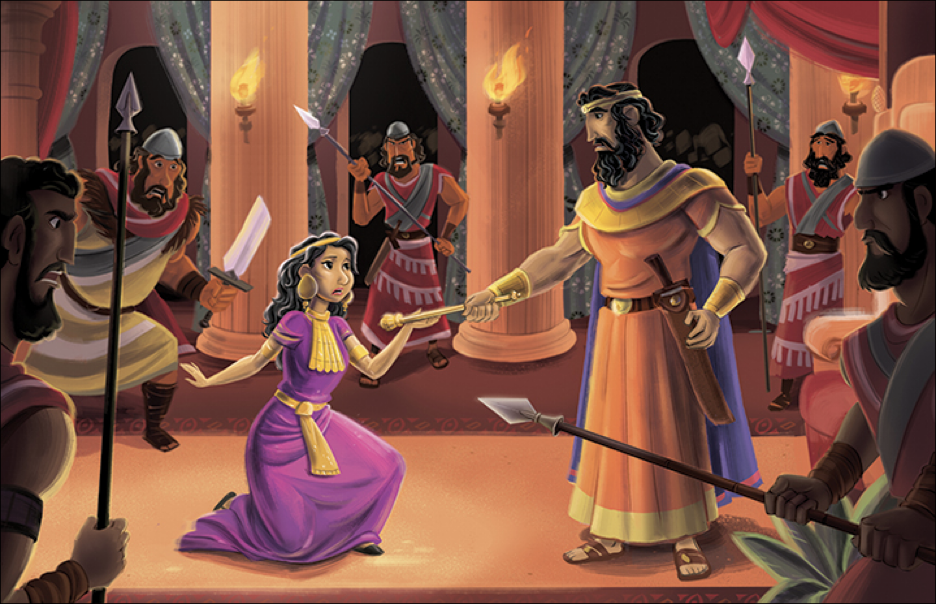Dear families,
Recall the last time you were faced with devastating news or found yourself filled with angst, worry, or fear. How did you respond?
Anger and bitterness are common reactions to bad news. We may feel tempted to isolate ourselves from others. Grief is complex, and responses vary greatly. However, according to the Bible, Nehemiah’s response is the best response.
Read about Nehemiah’s general response in Nehemiah 1:4. Then in Nehemiah 1:5-11, we discover the specific way that Nehemiah prayed in response to this devastating news. He recognized God’s faithfulness, requested God’s ear, confessed sin, and committed his people to the Lord’s care.
Nehemiah began his prayer with a recognition of the faithfulness of God. He indicated his confidence that God had been and would continue to be faithful. He then requested God’s ear. Though Nehemiah was confident that God heard him, he opened and closed his prayer of dependence by begging God to listen to his request.
Why did Nehemiah pray this way? Likely, he was further demonstrating his deep conviction that God and God alone is able to work in such a way that would bring about restoration.
Nehemiah’s prayer also demonstrates his belief that sin has serious consequences. He confessed his own sin and the sin of his family, recognizing that God was fully aware of their sin, but also that this sin was not to be taken lightly and needed to be dealt with.
Finally, he committed his family—the Jewish people—into the hands of this faithful and just God. He trusted God to be faithful to His word and His people. Though Nehemiah didn’t know what the outcome would be, he was confident in his God, that He would remain faithful no matter what.
Nehemiah’s response demonstrated a deep love, trust, and confidence in God that is exemplary for each of us. When we face moments of devastation, we can—with deep dependence—turn to God and find comfort.
Check out The Gospel Project At Home for resources designed to help you lead a family worship experience as well as suggestions for morning and evening prayer times and family activities.
FAMILY TALKING POINTS
CHRIST CONNECTION
This is the big idea of how this week’s Bible story points to Jesus.
Babies & Toddlers: Nehemiah helped God’s people rebuild the walls around their city. The walls protected the people from their enemies. Jesus protects us from our enemies.
Younger Preschool: Nehemiah helped God’s people fix the walls around their city. The walls protected the people from their enemies. Jesus protects us from our enemies.
Older Preschool: Nehemiah helped God’s people fix the walls around their city. The walls protected the people from their enemies. Jesus protects us from our enemies. When we know and love Jesus, He keeps us safe from sin and we will live with Him forever.
Kids: Nehemiah led the people to rebuild the walls around Jerusalem to protect them from their enemies. Jesus came to protect us from our greatest enemies, sin and death. He died on the cross and rose from the dead to rescue everyone who trusts in Him.
BIG PICTURE QUESTION & ANSWER
This is an important biblical truth that your child will encounter each week of this unit.
Younger Preschool: How should we feel when we make wrong choices? When we make wrong choices, we should feel sorry that we have disobeyed God and want to obey Him.
Older Preschool: How should we feel when we sin? When we sin, we should feel sorry that we have disobeyed God and choose to obey Him.
Kids: How should we feel when we sin? When we sin, we should feel sorry that we have disobeyed God and want to turn from our sin because we love Him.
KEY PASSAGE
This is a Bible verse that relates to what your child will encounter each week of this unit.
Babies & Toddlers: We should feel sorry when we disobey God. 2 Corinthians 7:10
Younger Preschool: We should feel sorry when we disobey God and want to obey Him. 2 Corinthians 7:10
Older Preschool: Godly grief produces a repentance that leads to salvation without regret. 2 Corinthians 7:10
Kids: For godly grief produces a repentance that leads to salvation without regret, but worldly grief produces death. 2 Corinthians 7:10
** Next week: Ezra Read the Law (Ezra 7–10; Nehemiah 8)



